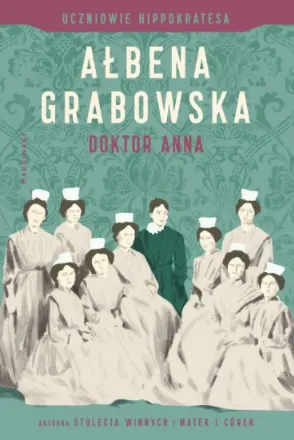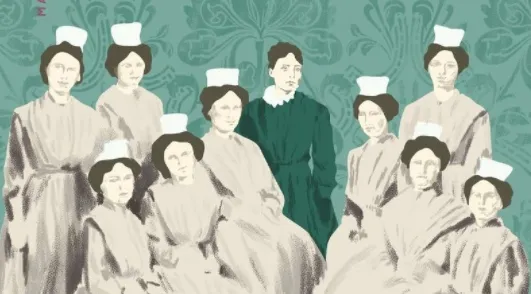
Doctor Anna, another novel by Albena Grabowska from the Hippocrates Students series, is a kind of continuation of Doctor Bogumił - numerous references and connections of the main character allow us to learn about his fate, although Doctor Bogumił Korzyński is no longer in the foreground. He is replaced by Anna Tomaszewicz, a true figure - the first doctor who recognized a Swiss diploma in Poland (in the Russian partition) and was admitted to the Warsaw Medical Society. Not after many difficulties, of course, as the contemporary Polish society (including doctors - it would seem enlightened) was not ready for the "freak who is a female doctor".
In order to start her own practice, Anna Tomaszewicz was forced to fight bureaucracy, the unfriendliness of tsarist officials and ordinary human stupidity, but she remained adamant, gaining unexpected friends along the way, such as the faithful servant Kasia or the Sultan Akun - the mother of the Sultan, whose harem she cared for during her stay in Petersburg. Has her determination paid off and has she managed to open her own obstetric practice to support poor women and spread the torch of education, or more precisely, of hygiene and the fight against dirt? Well, it's not hard to check as he is a historical figure, and yet his story is read with a flushed face, keeping his fingers crossed for the success of his efforts.
As in the case of Doctor Bogumił, the author weaves into the content of a scene from the life of characters who have made a breakthrough in medicine, although this time we will not find tragic stories among them, but we will learn about the first doctor in the United States, Elizabeth Blackwell, the inventor of the pasteurization process (although his wife would have something to say) and the inventor of the rabies vaccine, Louis Pasteur, the mother of modern nursing - the lady with a lamp, Florence Nightingale, and the discoverer of X-rays - Wilhelm X-ray. Exceptions from their lives perfectly correlate with the whole text, emphasizing the importance of "light" overcoming "darkness".
Other historical figures also appear in the lives of the fictional characters (for example Henryk Sienkiewicz, the best man at a wedding, the famous bookseller Gracjan Unger) or allusions about the irreconcilable enemy of a female doctor - the famous professor of surgery, Ludwik Rydygier.
It is true that you may have a bit of mixed feelings about the "fictionalization" of characters from the not-so-distant past (both in the foreground and background), but on the other hand, the story of the first doctor in Poland, who started the practice and later educated the next generation of midwives, until she asked to be written and "colored". Albena Grabowska, this thing went quite well. I wonder to whom the next novel from the Disciples of Hippocrates series will be devoted...
